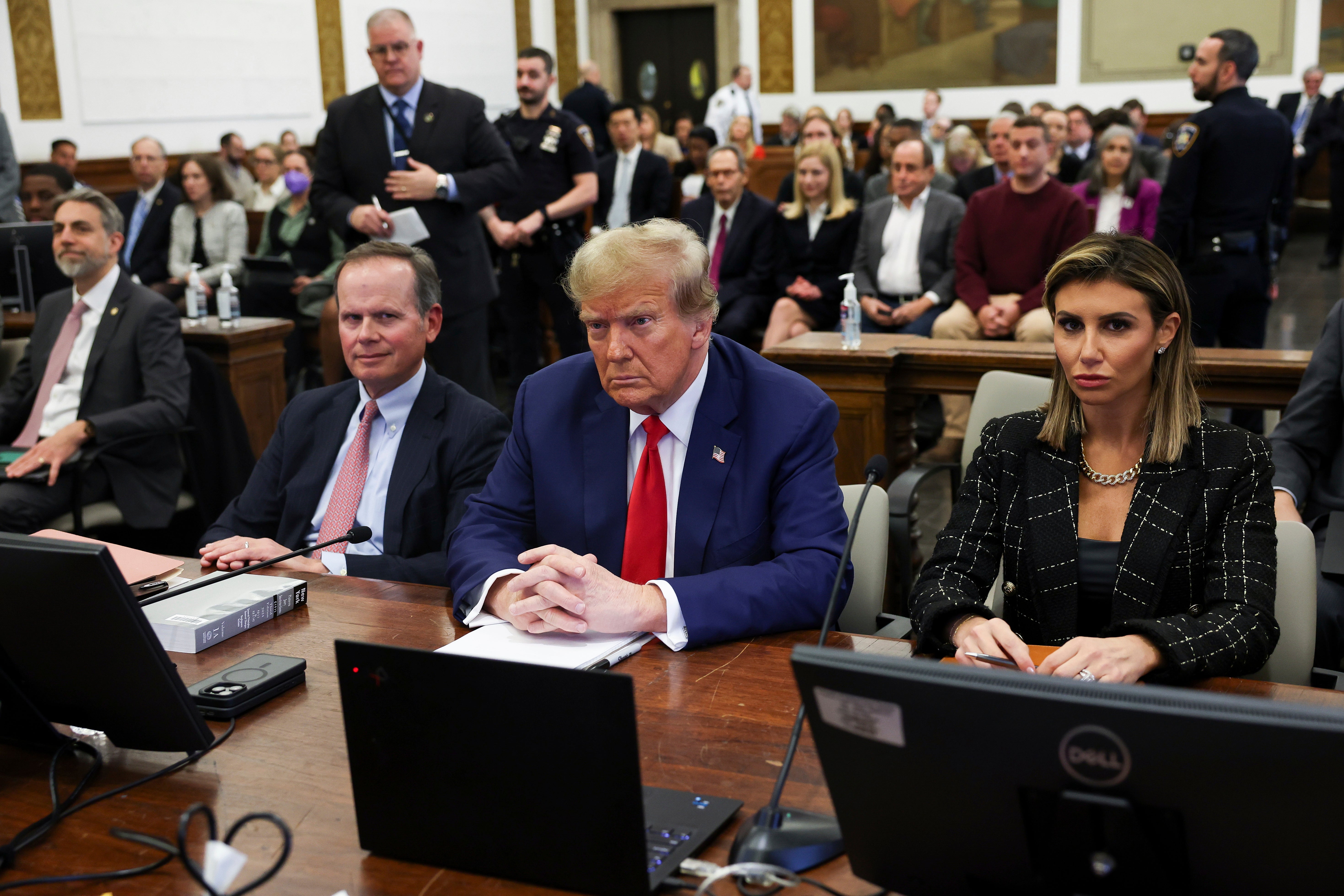Judge Engoron’s decision in Donald Trump’s civil fraud trial expected in early or mid-February
New York attorney general seeks $370m and Trump’s lifetime ban from state’s real estate industry
Your support helps us to tell the story
From reproductive rights to climate change to Big Tech, The Independent is on the ground when the story is developing. Whether it's investigating the financials of Elon Musk's pro-Trump PAC or producing our latest documentary, 'The A Word', which shines a light on the American women fighting for reproductive rights, we know how important it is to parse out the facts from the messaging.
At such a critical moment in US history, we need reporters on the ground. Your donation allows us to keep sending journalists to speak to both sides of the story.
The Independent is trusted by Americans across the entire political spectrum. And unlike many other quality news outlets, we choose not to lock Americans out of our reporting and analysis with paywalls. We believe quality journalism should be available to everyone, paid for by those who can afford it.
Your support makes all the difference.A ruling from the judge overseeing Donald Trump’s civil fraud case is not expected to arrive until early or mid-February, according to a spokesperson for New York courts.
Earlier this month, New York County Supreme Court Judge Arthur Engoron acknowledged that “everyone’s anxious for a decision” following 11 weeks of trial testimony and closing arguments in the lower Manhattan courtroom, and that he would do his best to issue a final judgment by 31 January.
A spokesperson for New York court told The Independent that a decision is now likely “early to mid-February, as a rough estimate, and subject to modifications.” There will not be a court hearing or a news conference or other event to announce the decision; it will be posted publicly to the docket along with other case filings.
The former president and his co-defendants are accused of defrauding banks and investors as part of a decade-long scheme to secure favourable financing terms for some of his brand-building properties, according to a blockbuster lawsuit filed by New York’s attorney general nearly two years ago.
Judge Engoron’s pretrial judgment last September determined that the defendants are liable for allegations of fraud, leaving a bench trial to determine how much Mr Trump and his associates should owe, if anything, and whether the attorney general is successful on arguments for other claims in her complaint.
After testimony in taped depositions and in courtroom arguments, the office of New York Attorney General Letitia James pressed for $370m in sanctions for so-called “ill-gotten gains” that the defendants allegedly received as a result of fraudulently obtained financing terms that banks would have received if they used rates that reflected Mr Trump’s actual net worth and assets.
Her office also asked the judge to ban Mr Trump and his former chief associates Allen Weisselberg and Jeffrey McConney from New York’s real estate industry for life.
Mr Trump’s sons and co-defendants Donald Trump Jr and Eric Trump – who effectively took control of the Trump Organization’s day-to-day business and Mr Trump’s trust while he was in the White House – also could face five-year bans from the industry.

Looming sanctions add to Mr Trump’s growing list of legal liabilities, spanning several lawsuits and 91 criminal charges that stem from four separate federal and state-level cases. He has pleaded not guilty in all of them.
Last week, a federal jury in a separate civil case decided he owes E Jean Carroll more than $83m for repeatedly defaming a woman he was found liable for sexually assaulting. Mr Trump has vowed to appeal that ruling.
He has also appealed Judge Engoron’s pretrial ruling, and he is expected to appeal any subsequent ruling following the trial.

Join our commenting forum
Join thought-provoking conversations, follow other Independent readers and see their replies
Comments